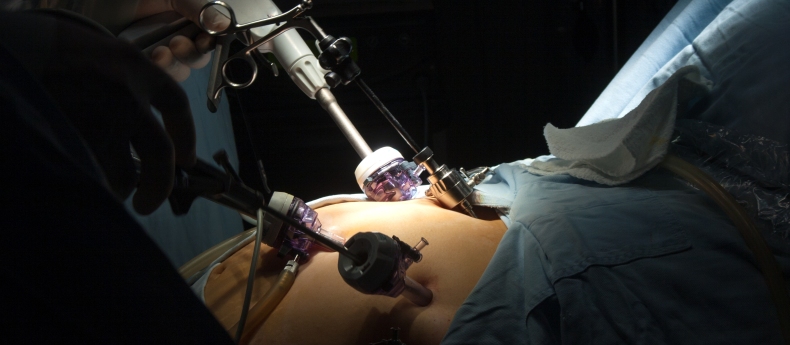
Laparoscopic Repair of Hiatus Hernia
What is a hiatus hernia?
A hiatus hernia is when a part of the stomach moves up into the chest area. Normally, the stomach sits below the diaphragm, the layer of muscle that separates the organs in the chest from the organs in the abdomen.
There are 2 types of hiatus hernia:
Sliding hernia — A sliding hernia happens when the top of the stomach squeezes up into the space above the diaphragm.
Paraesophageal hernia — A paraesophageal hernia happens when the top of the stomach folds up against the esophagus, creating a pouch. This is not very common, but it can be serious. If left untreated, this type of hernia can damage the top of the stomach.
What are the symptoms of a hiatus hernia?
- Burning in the chest, known as heartburn
- Burning in the throat or an acidic taste in the throat
- Stomach or chest pain
- Trouble swallowing
- A raspy voice or a sore throat
- Unexplained cough
Is there a test for hiatus hernia?
Yes, a special type of X-ray or passing a camera into the stomach (endoscopy).
What treatments are available?
Medical treatment can be given for acid reflux. However, there is no medicinal cure for a hiatus hernia.
When should I consider surgery?
If you are unresponsive to medical therapy and have been diagnosed as having a hiatus hernia.
What is the best option for surgery?
Laparoscopic hiatus hernia repair and fundoplication is the gold standard for treating a hiatus hernia. This procedure involves repairing the enlarged hiatus (the defect in the diaphragm) and wrapping the upper part of the stomach around the lower end of the esophagus. The operation only requires five small 5 mm to 10 mm incisions. Compared to a conventional operation, laparoscopic hiatus hernia repair and fundoplication causes much less trauma and shortens your hospital stay.
What are the complications?
Difficulty swallowing and gas bloating are the most common complications after surgery (around 5% of patients). Most of these symptoms will resolve on their own after two or three months. A few patients (fewer than 1%) will need endoscopic dilatation.
How long is the hospital stay? How long is the operation?
The average hospital stay after a laparoscopic operation is about two to three days. The average operation time is about 90 minutes.





